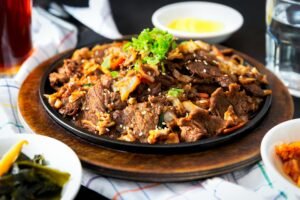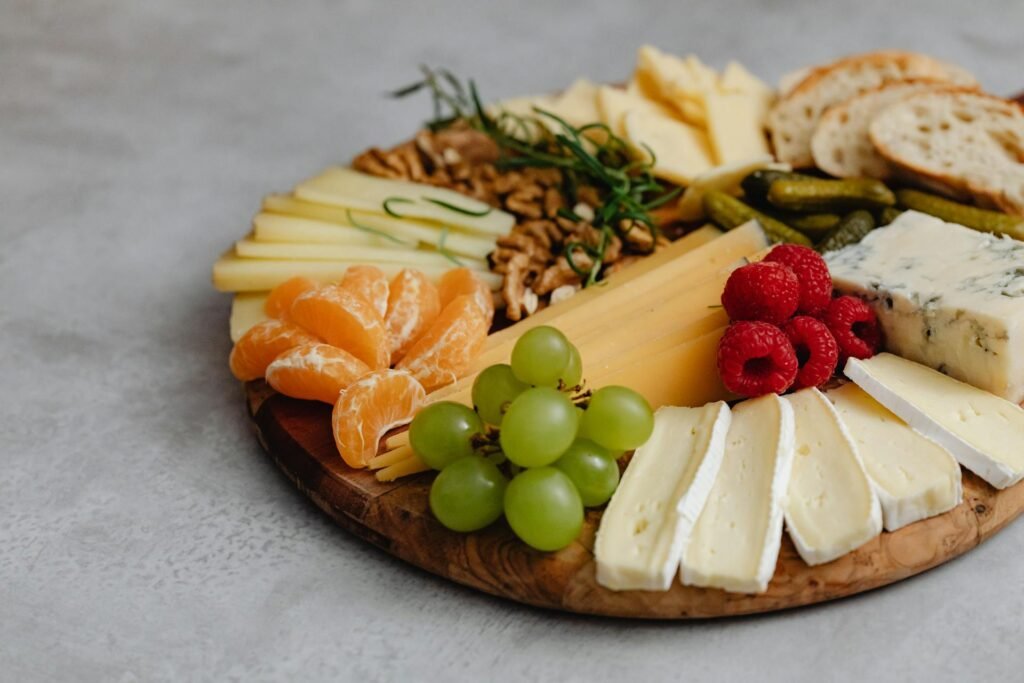Iron-rich foods- Iron is a vital nutrient that is obtained through your diet and plays a crucial role in various bodily functions, particularly in preventing anemia. One of its primary functions is the production of hemoglobin, a molecule found in red blood cells that transports oxygen throughout the body.

It’s important to note that while your body can store iron, it cannot produce it on its own, making dietary consumption essential for maintaining adequate iron levels.
Types of Iron-Rich Foods
Iron-Rich Foods TIPS
Iron can be classified into two types based on its source and absorption rate:
Haem Iron: This type of iron is easily absorbed by the body. Excellent sources of haem iron include:
Meat: Beef, lamb, pork, and kangaroo
Poultry: Chicken, turkey, and eggs
Seafood: Salmon, sardines, and tuna
Organ meats: Liver, kidney, and pate
Non-Haem Iron: This type of iron is relatively harder for the body to absorb. However, plant-based sources can still provide a significant amount of iron. If you follow a plant-based diet, it is recommended to consume approximately 80% more iron to meet your dietary requirements. Good sources of non-haem iron include:
Iron-fortified bread and breakfast cereals
Nuts and seeds
Dried fruit
Wholemeal pasta and bread
Legumes: Mixed beans, baked beans, lentils, and chickpeas
Dark leafy green vegetables: Spinach, silver beet, and broccoli
Tofu
Recommended Iron Intake
The recommended dietary intake (RDI) of iron varies depending on age and sex. Here are the general guidelines:
Children (regardless of sex):
11mg/day from 7 to 12 months old
9mg/day from 1 to 3 years old
10mg/day from 4 to 8 years old
8mg/day from 9 to 13 years old
Teenagers:
11mg/day for males aged 14 to 18 years
15mg/day for females aged 14 to 18 years
Adults (19 to 50 years old):
8mg/day for males
18mg/day for females
Adults (over 50 years old):
8mg/day
Pregnant women:
27mg/day
Breastfeeding women:
10mg/day for ages 14 to 18 years
9mg/day for ages 19 years and over
Enhancing Iron Absorption
Foods Rich In Iron
Certain dietary habits can influence the absorption of iron in your body. For instance, consuming foods rich in vitamin C alongside iron-rich foods can enhance iron absorption. Some excellent sources of vitamin C include:
Citrus fruits: Oranges and lemons
Tomatoes
Berries
Kiwi fruit
Melons
Green leafy vegetables
Capsicum
To maximize iron absorption, try consuming these vitamin C-rich foods uncooked, alongside iron-rich foods. You can also consider drinking orange juice with your meals or taking a vitamin C supplement.
Iron-Rich Foods

On the other hand, some factors can inhibit iron absorption, such as:
Coffee
Tea
Red wine (both alcoholic and non-alcoholic)
Calcium-rich foods like milk or cheese
Calcium supplements
Certain soybean-based foods
To minimize the impact of these inhibitors, it is advisable to consume them between meals.
Consequences of Iron Deficiency
Insufficient iron intake can lead to iron deficiency, characterized by low iron levels in the body. Iron deficiency can result in various symptoms, including fatigue, headaches, and difficulty concentrating. If left untreated, it can progress to anemia.
If you suspect iron deficiency, it is important to consult your doctor. They may conduct blood tests, refer you to a dietitian, or recommend iron supplements to address the deficiency.
Iron Overload and Hemochromatosis
While iron is essential for the body, excessive iron intake can be harmful. It is crucial to consult your doctor before taking iron supplements, especially if you have concerns about your iron levels.
Iron-Rich Foods
A genetic condition called hemochromatosis can cause excessive absorption and storage of iron in the body. Approximately 1 in every 200 individuals has this condition, which is often identified through screenings of close relatives with the condition. If you have any concerns about your iron levels or potential hemochromatosis, discuss them with your doctor.
Resources and Support
For more information about iron and other vital nutrients, you can visit the Eat for Health website. Additionally, you can reach out to the healthdirect helpline at 1800 022 222 (known as NURSE-ON-CALL in Victoria). Registered nurses are available 24/7 to provide assistance and answer your queries.
